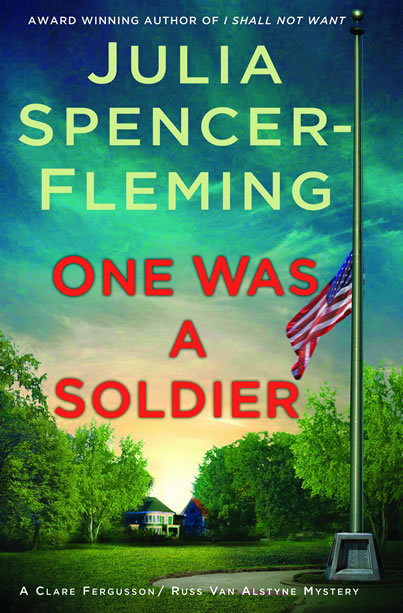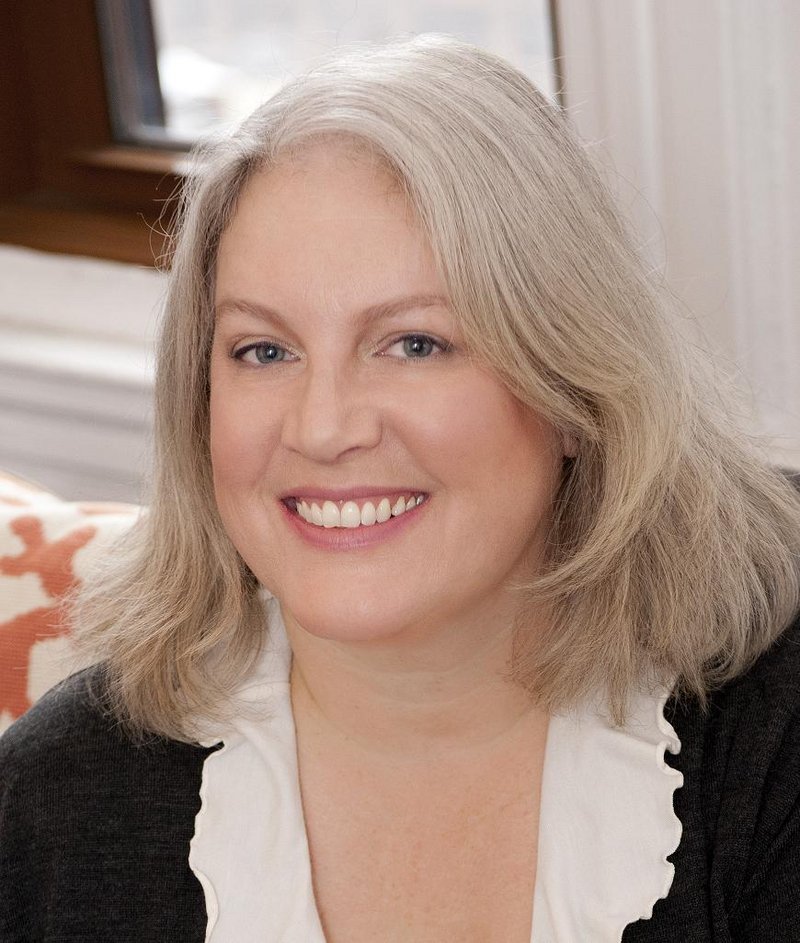Julia Spencer-Fleming was in an upbeat mood Monday.
Her mystery “One Was a Soldier,” published by Minotaur Books, was favorably reviewed the day before by Marilyn Stasio of the New York Times, and it also had made its initial appearance on the Times best-seller list, the first of her seven books to do so.
Spencer-Fleming’s series features Clare Fergusson, an Episcopal priest who also is a combat helicopter pilot in Iraq, and Russ Van Alstyne, a fairly recently widowed police chief in a small Adirondack Mountain town in New York.
The two are a couple, although when the book opens on the day Fergusson returns from her deployment, they had been trying fairly unsuccessfully to keep the relationship secret.
The book covers the evolving relationship of Fergusson and Van Alstyne, the difficulties faced by people in a veterans’ support group with Fergusson, tensions between Van Astyne and the CEO of a major business in town and, not quite an afterthought, a crime to be investigated.
Spencer-Fleming lives in a 170-year-old farmhouse in Buxton with her husband and three children. Her website is juliaspencerfleming.com.
Q: I don’t want to give the plot away, but I was almost halfway through the book when I went to the cover to make sure I was reading a mystery. They weren’t investigating a crime yet. Is that typical with you?
A: I write crime fiction, but the crime isn’t necessarily forefront and center of what I am trying to do. What I want to do is write about characters dealing with what life throws at them.
This is not atypical of me. In one of my mysteries, the body does not show up until Page 275. If you are looking for a classic puzzle, you don’t want to read me. I like to play with the genre and experiment, and I do that in a variety of ways. Sometimes it is with framing and chronology. In this story, I jump forward and backward in time. In a past book I used unreliable narrators. I like messing with the readers’ heads a bit.
Q: How did you decide to do a book in which the major concern is the difficulties faced by returning veterans? Do you have personal experience?
A: Not direct personal experience. I am the wife of an Air Force veteran and the daughter of an Air Force veteran, and have a lot of veterans in the family. Fortunately, no one who has been directly affected by war. Really, it was the stories that I was reading in the Press Herald and Maine Sunday Telegram about the returning National Guard troops, the engineer battalion up in Bangor, of the people being deployed several times and the people left behind. This is really a huge thing that is happening in small towns all over Maine and the country. Cops and firefighters and other folks who are going off to war and then coming back, and what happens then. That is the story, and it is important.
Q: It seems we are hearing more about post-traumatic stress disorder with Iraq and Afghanistan veterans than we did in previous wars. Did we just not name it and report on it before, or is it more common now?
A: I think we are hearing about it much more currently. It was a lot less acceptable back in the ’60s to go see a shrink, although there is still an issue in the military. Also I think we are dealing with war that is unique, with men and women going over and coming back and going over again. There is a lot of cycling in and out of the war zone, and that is stressful. But where you go and what you do there changes you in ways that are timeless.
Q: With Cadfael, Rabbi Small, Father Koesler in Detroit, Father Brown in England, and now Clare Fergusson in the Adirondacks, there is a history of religious leaders as fictional mystery solvers. Is there some special reason that makes it work?
A: Part of it is that clerics are going to be involved in the community and going to be there during moments of crisis, and they know things about individuals that others do not know. They have access to very private parts of people’s lives. All of those make an excellent basis for an amateur detective in crime fiction.
Q: How did you end up in Maine?
A: My husband is a Mainer, from Deer Isle. We met when he and I were both in Washington, D.C. I was in grad school and he was in law school. He courted me with beach weekends and ski weekends, so we got married and moved to Maine, and I knew it was going to be wonderful. And now we live in Buxton, with no beach and no skiing.
Q: You went to UMaine Law. Have you ever practiced law?
A: I practiced very briefly. I worked for the law offices of Joe Bornstein. (Break for laughter.) It was actually a great place to work. I had two kids and a baby and it was an incredibly family-friendly office. Not a lot of law firms let you go to work at 8:30 and leave at 5.
What I really should have said is that I worked at the most famous law firm in Maine.
Q: This is the seventh in the series? Are you getting any kind of an itch to do something different?
A: Sometimes. The curse is that every writer has far more ideas, plots and characters than they have time to write. Particularly for me, for I am a slow writer, taking at best a year to write a book.
So for now I am buckling down and writing about Clare Fergusson and Russ Van Alstyne.
Q: Is there anything we should have covered that I didn’t?
A: I probably should say that my mysteries are as much police procedural as amateur detective stories. I try to balance the two, and I like that balance.
Tom Atwell can be contacted at 791-6362 or at:
tatwell@pressherald.com
Send questions/comments to the editors.




Success. Please wait for the page to reload. If the page does not reload within 5 seconds, please refresh the page.
Enter your email and password to access comments.
Hi, to comment on stories you must . This profile is in addition to your subscription and website login.
Already have a commenting profile? .
Invalid username/password.
Please check your email to confirm and complete your registration.
Only subscribers are eligible to post comments. Please subscribe or login first for digital access. Here’s why.
Use the form below to reset your password. When you've submitted your account email, we will send an email with a reset code.